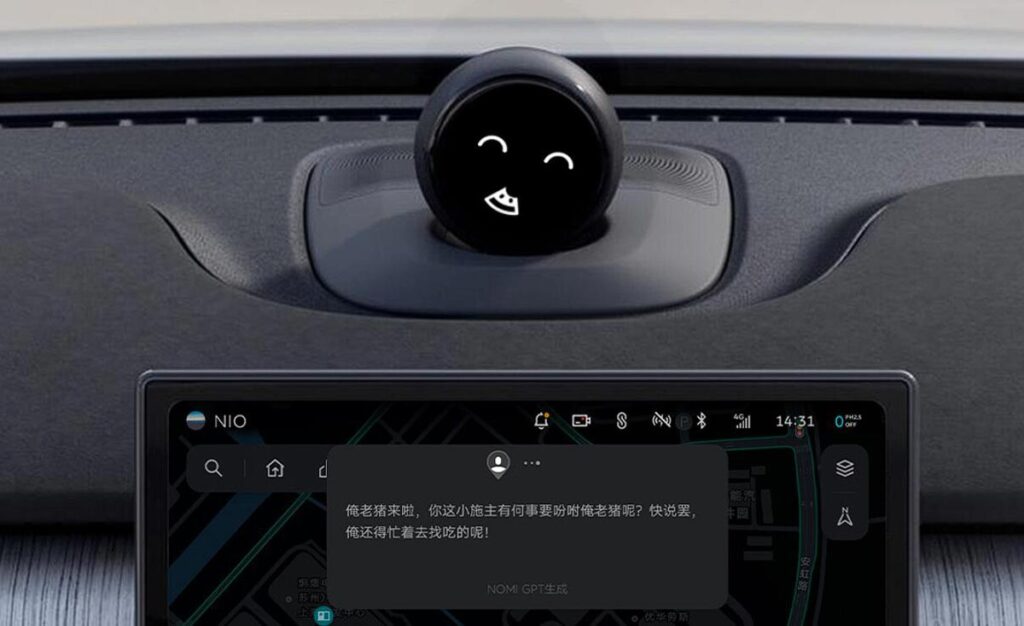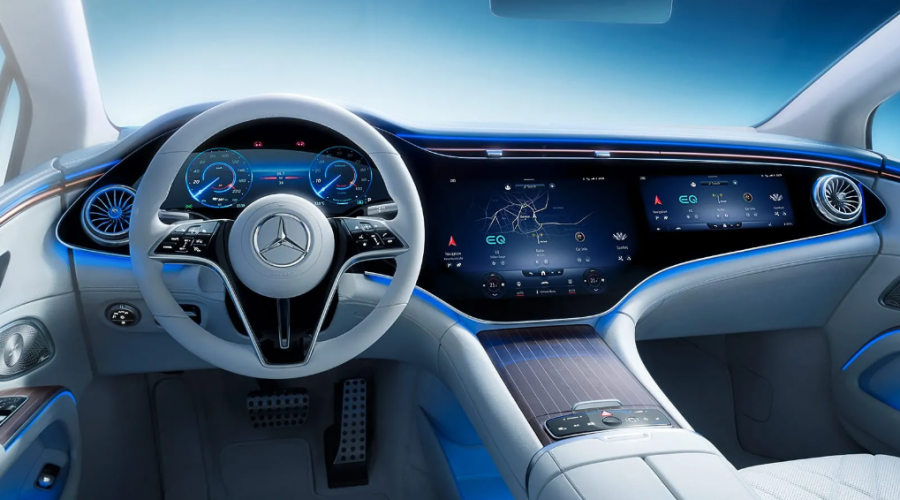Imagine stepping into your car and it greets you by name, adjusts your seat to perfection, and starts playing your favourite playlist—all without you touching a button. While it sounds like a sci-fi fantasy, this technology is already rolling out.
Automakers such as Mercedes-Benz, BMW and NIO are pioneering artificial intelligence-powered cockpits, turning vehicles into personalized companions. Mercedes’ MBUX system, enhanced by ChatGPT, engages in human-like conversations, while NIO’s NOMI GPT and Xpeng’s Xiao P let you control navigation, climate and more using just your voice.

Safety is also a key focus
AI-driven Driver Monitoring Systems (DMS) can detect fatigue or distraction, prompting drivers to stay alert. LG’s AI cockpit takes it further, reading your facial expressions and heart rate to adjust lighting or music based on your mood. In some cases, your car might know you better than your closest friends!
The Perks: A Truly Personalized Ride
AI offers an unprecedented level of personalization. Cars now remember your preferred seat settings, climate preferences and even your regular coffee order for those early-morning commutes.
Augmented Reality (AR) Head-Up Displays (HUDs) bring critical information—navigation directions, safety alerts—directly to your windshield, eliminating the need to look away from the road.
Generative AI systems, powered by large language models, are also making waves. These tools can answer complex questions like, “What’s the quickest route around traffic?” Or “Can you tell me a joke?”
All this while acting as a helpful co-pilot.
Mercedes’ collaboration with ByteDance’s Volcano Engine is an example of this next-gen tech in action.
The Concerns: Too Much Information?
With all this convenience comes a tradeoff: privacy. AI systems rely on collecting massive amounts of personal data, including your voice, habits, and even emotional states. This raises pressing questions about data security and ownership. Who has access to this information? How safe is it? And what could happen if it’s hacked?
Technology hiccups are another concern. While AI aims to make driving safer, malfunctions could have serious consequences. What if a voice assistant misunderstands you or a driver monitoring system fails to catch signs of fatigue?
There’s also the issue of cost. AI systems aren’t cheap to develop, leading automakers to partner with tech giants like Google and Amazon. But these partnerships also mean sharing control—and customer data—with third parties, which may further unsettle privacy-conscious drivers.
Looking Ahead: Smarter Cars, Smarter Choices?
AI is undeniably revolutionizing vehicle cockpits, introducing features like emotional recognition, smart home integration and predictive assistance. But as the technology advances, automakers face the challenge of balancing innovation with privacy, safety and affordability.
“AI can make driving smarter, but it shouldn’t make it more complicated,” one industry expert observed.
So, what’s your take? Is AI in cars a futuristic dream or an invasion of privacy? Let us know your thoughts.
David Lemon is a seasoned 15-year leader in the automotive industry with extensive experience in sales and franchise development at OK Tire, Mister Transmission and Enterprise-Rent-a-Car. David leverages his expertise to help businesses seamlessly integrate AI solutions into their growth strategies. Connect with David on LinkedIn.






